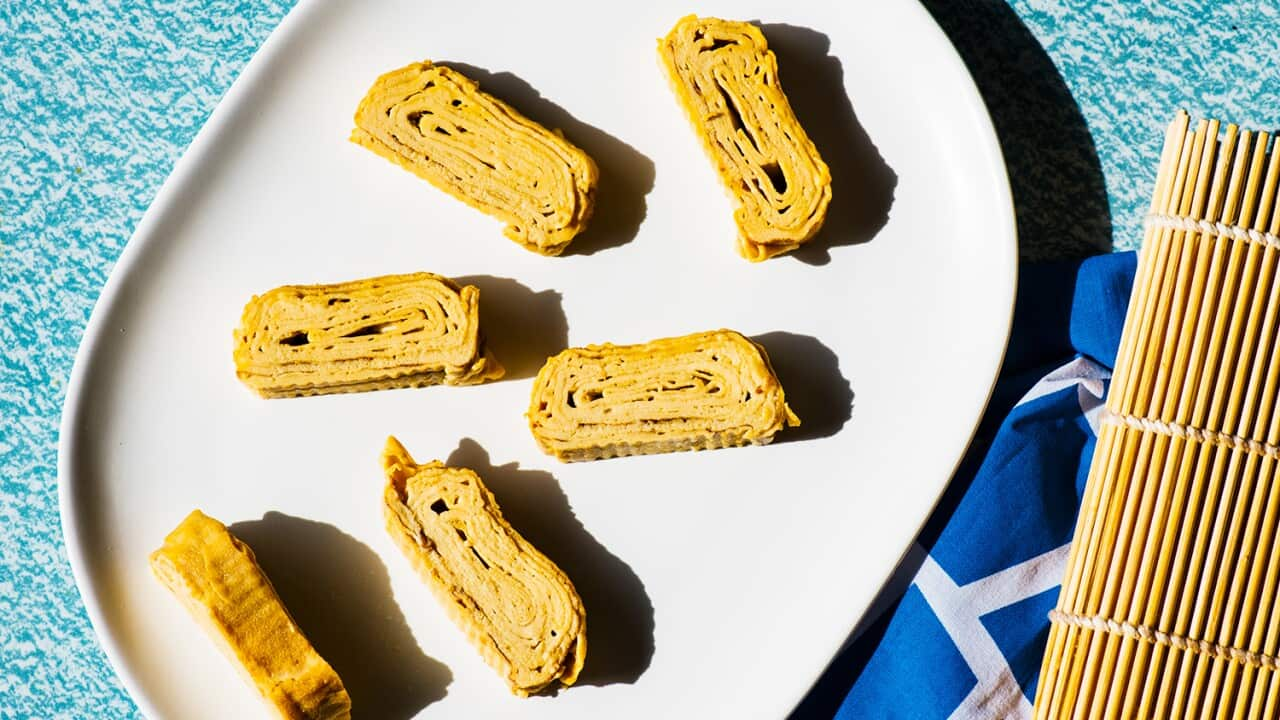--- airs weeknights on SBS Food at 7.00pm. Chase Kojima's Japanese episode airs Thursday 16 September. Each episode will be made available after broadcast on SBS On Demand. ---
The New York Times' Malcolm Gladwell wrote that it takes 10,000 hours to learn and master a skill. Nothing yet has been widely said about stealing a skill, but in Chase Kojima's case and in all sense of the word, he stole his technique from his legendary sushi chef father and mentor.
"You cannot expect people to teach you. You need to steal the skill from the senpai (mentor). You need to be hungry to get good. You need to take action and work hard." Kojima recalls how his father very clearly explained the proactive concept. The chef's early training was far from formal, and he owes his business success to this way of thinking. "Basically, you need to teach yourself. You need to watch, focus, and understand. You learn why things work a certain way and you start to question everything. Is this the best way to do it?"
The empire owner brings his sukiyaki recipe to The Cook Up - a Japanese style hot-pot that embodies both Japanese cuisine and its simplest cooking methods. In preparation of the show, he thought about other iconic dishes and TV-friendly alternatives. "There's ramen, sushi, tempura [...] sukiyaki was just spot on."
Adam Liaw and Kojima have shared the stage before and have been in the same food spaces as chefs who specialise in Japanese cooking, but this was the first time they've worked together this closely. "I've cooked for him before. He's such a nice guy; he makes you feel very comfortable."
Kojima, who doesn't have much screen experience, presents very naturally. "I always get nervous and I try not to show it, but [like anything] it comes with experience, right?"
"When I'm in front of customers, I need to perform the art of the cooking and entertain them at the same time. That experience definitely helps when I talk about food and when I'm in my groove. If I have to speak about anything else, then I'll struggle - I'm not built for that," the chef admits.
It's better being humble than being cocky.

Source: Danielle Abou Karam
COOK CHASE'S SUKIYAKI

Chase's sukiyaki
2020 Japan Olympics and modern fusion foods
The Olympics have historically changed the way the world perceives the host country's culture, and thus its food and cuisine. With it hosted this year in the centre of Japan, will it have the same effect?
Social media savvy Olympians are revealing things about the event that the general public doesn't usually see - the first being their cardboard beds, the flirting coming in second, and
Japanese food is worldwide already.
"Japanese food is worldwide already", Kojima answers proudly. The chef, who loves sports and is playing tennis to keep calm in lockdown, is cheering for Japan, America, and Australia. "When I was younger, I really wanted to be some type of sports professional - but it didn't work out in the end," he confesses.
With Olympics and globalisation comes by-product discussions about modern fusion foods. California rolls and fried sushi variations are some of the most well-known examples. "Some chefs hate the word fusion," he admits. As a younger chef, he experimented with 'hybrid' type cooking to find his own unique style and flavour. For him, fusion dishes were never the objective, it sort of just happened. The restauranteur talks about its international boom in the late 80s to early 2000s saying it was just a good way for chefs and restaurants to stand out in a hyper-competitive environment.
Kojima's latest venture, , encourages an eloquent Japanese eating experience at home. Instagram-ready dons and dishes are tailor-made for takeaway and delivery for those in the Darling Square area.
When eating fine Japanese food at home, "you need to set up a fancy table, light some candles, buy a nice wine, and dress up. Try to make it a special event." he suggests. "I mean, at least the dishes are taken care of."
Chase's lockdown anime recs
- Your Name
- Hajime no Ippo (The First Step)
- Slam Dunk
- Rurouni Kenshin (Samurai X)








